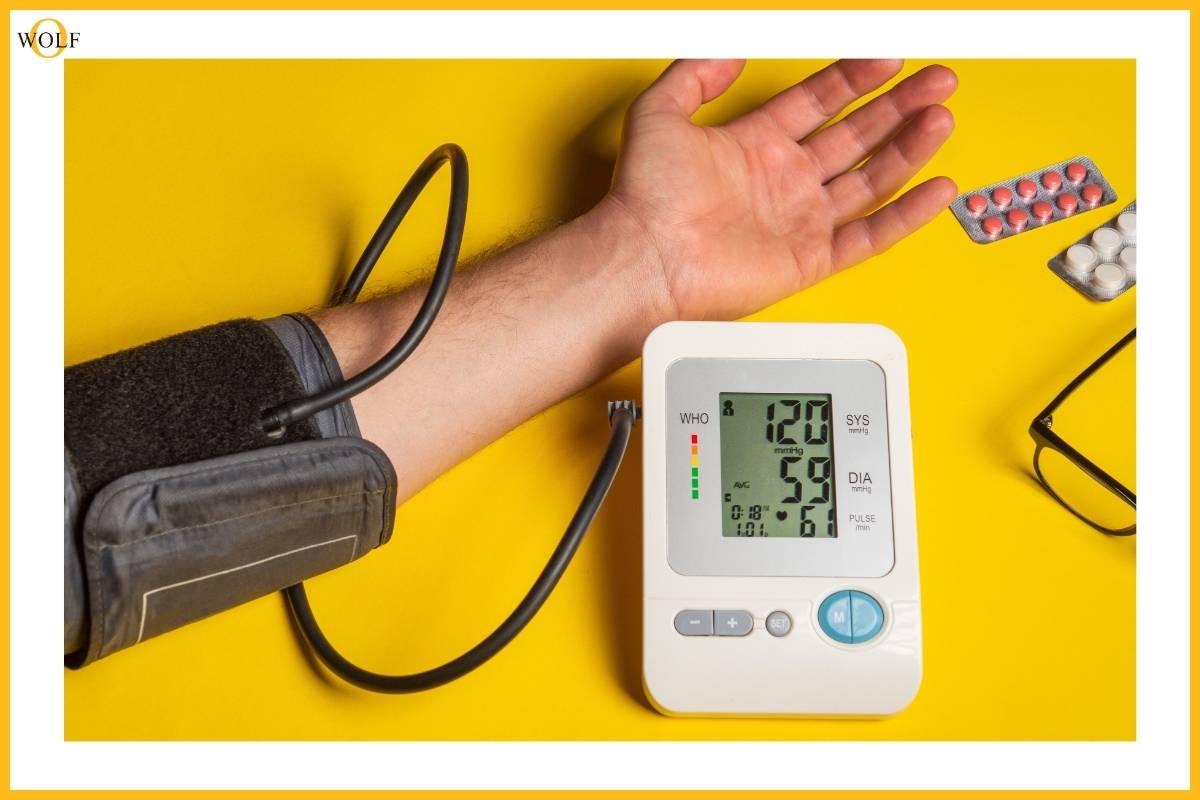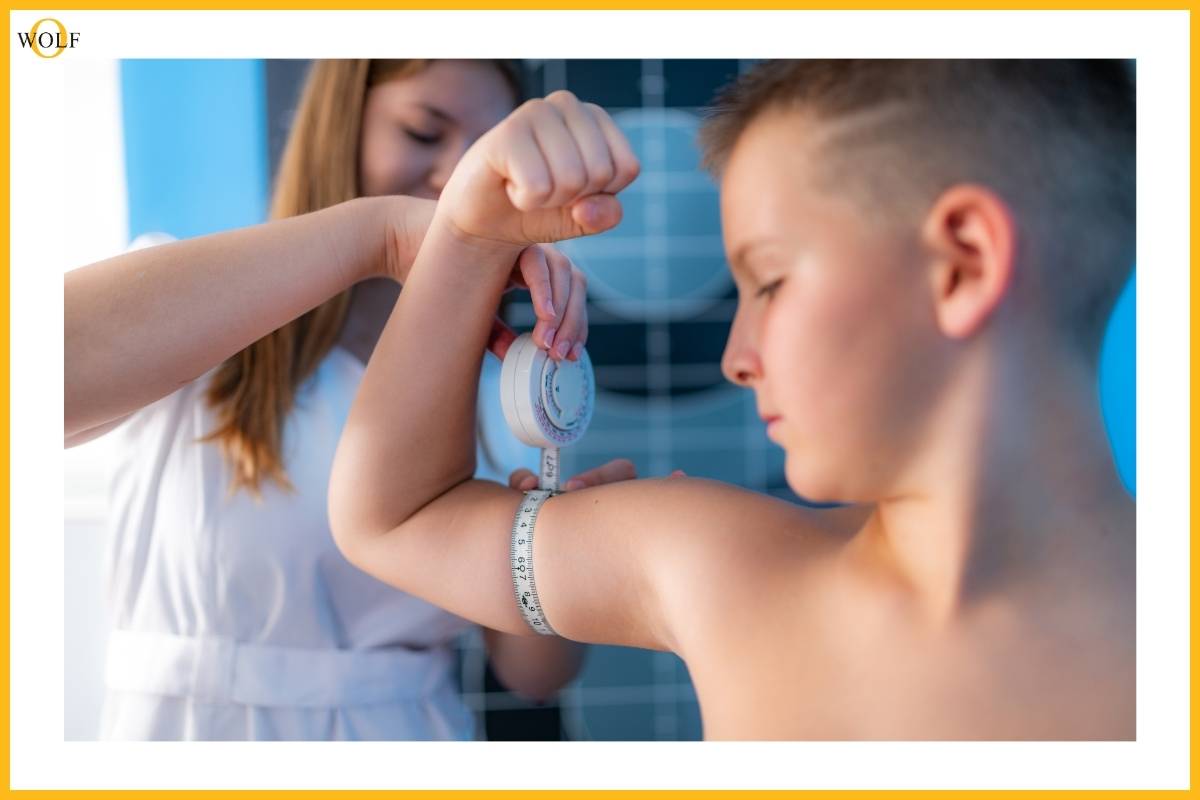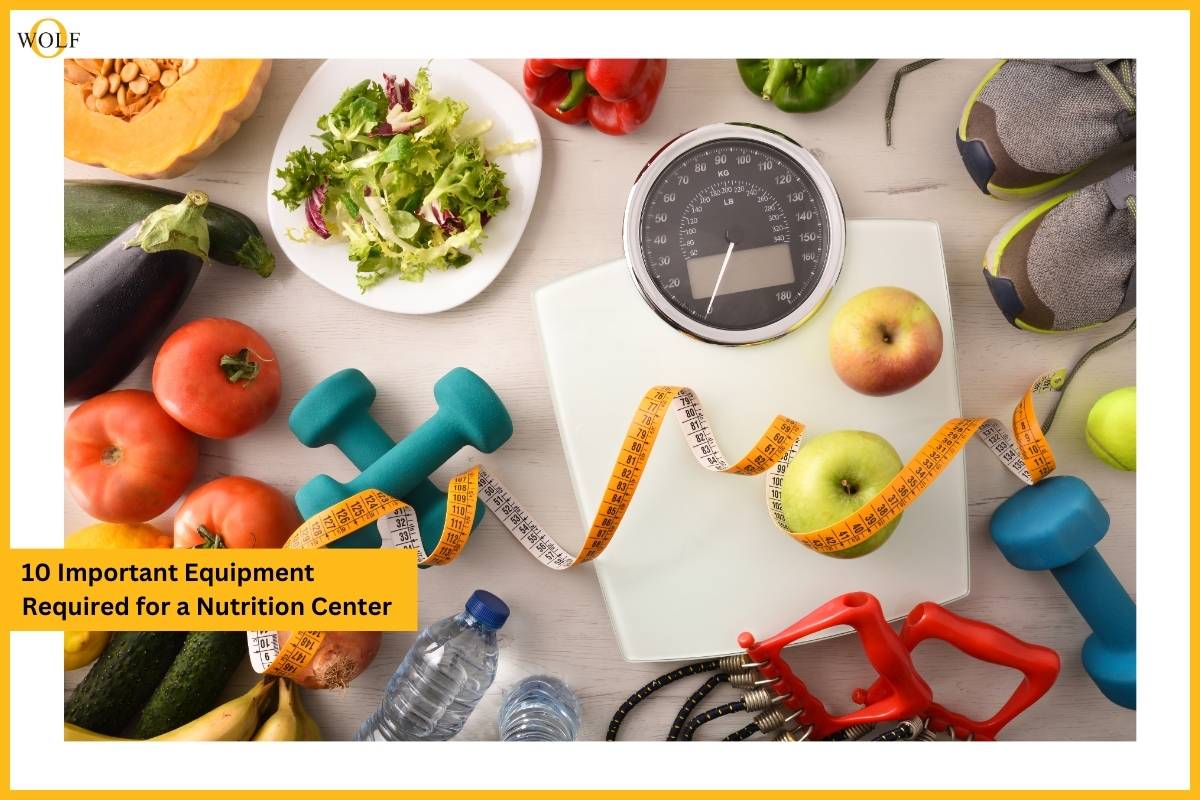The aim of the Nutrition Centre is to offer you practical dietary strategies that can reduce your risks of developing health issues such as heart disease, diabetes, and cancer, and ultimately help you improve the way of your life. A nutrition center should be carefully planned and the right equipment to ensure that clients receive the best services. The right tools are essential for providing accurate assessments, effective treatments, and comprehensive nutritional support.
This article will guide you through the ten most important pieces of equipment required for a nutrition center, ensuring your facility is well-equipped to meet the needs of your clients.
10 most important pieces of equipment required for a nutrition center:
1. Body Composition Analyzer
A body composition analyzer is a cornerstone of any nutrition center. This equipment measures various components of body composition, including fat mass, muscle mass, and water percentage. It provides a comprehensive analysis that helps nutritionists tailor diet and exercise programs to individual needs. Popular models, such as the InBody and Tanita, offer detailed reports that can track progress over time. A Nutrition Center must have a reliable body composition analyzer to provide accurate assessments of clients’ body fat, muscle mass, and overall health metrics.
2. Calorimeter
Calorimeters are essential for measuring the metabolic rate of clients. Understanding how many calories a person burns at rest (Basal Metabolic Rate or BMR) and during activity helps nutritionists create personalized diet plans. Equipment like the COSMED K5 or the Parvo Medics TrueOne 2400 provides precise measurements necessary for effective nutritional guidance. Using a calorimeter in your Nutrition Center can accurately determine the caloric needs of your clients, ensuring tailored diet plans that promote optimal health.
3. Blood Pressure Monitor

Monitoring blood pressure is critical for clients with cardiovascular concerns or those at risk of hypertension. A reliable blood pressure monitor helps track and manage these conditions effectively. Automated devices like the Omron Platinum Blood Pressure Monitor offer accurate and consistent readings, which are crucial for assessing the impact of dietary changes on cardiovascular health. A Nutrition Center should always have a blood pressure monitor to help track and manage clients’ cardiovascular health effectively.
4. Glucometer
For clients with diabetes or those at risk of developing it, monitoring blood glucose levels is essential. A glucometer provides quick and accurate readings, enabling nutritionists to adjust dietary recommendations accordingly. Devices like the Accu-Chek Guide or the FreeStyle Libre are popular choices for their ease of use and reliability.Equipping your Nutrition Center with a reliable glucometer is vital for managing and monitoring clients’ blood sugar levels effectively.
5. Professional Kitchen Appliances
A well-equipped kitchen is crucial for any nutrition center, particularly if you plan to offer cooking classes or prepare sample meals. Essential appliances include high-quality blenders, food processors, ovens, and stovetops. Brands like Vitamix, Cuisinart, and KitchenAid provide durable and efficient equipment that can handle the demands of busy nutrition. Professional kitchen appliances are a must-have in any Nutrition Center to prepare healthy meals and conduct cooking classes.
6. Dietary Software
Dietary software helps track clients’ nutritional intake and manage their dietary plans. Programs like NutriAdmin, Cronometer, and MyFitnessPal offer comprehensive features that allow nutritionists to create, monitor, and adjust meal plans efficiently. These tools are invaluable for maintaining accurate records and providing data-driven recommendations. Utilizing dietary software in your Nutrition Center can streamline the process of creating and monitoring personalized meal plans for your clients.
7. Anthropometric Measurement Tools

These tools, including calipers, tape measures, and stadiometers, are essential for assessing body measurements such as skinfold thickness, waist circumference, and height. Accurate anthropometric data is crucial for evaluating nutritional status and tracking progress. Brands like Seca and Harpenden offer high-quality measurement tools trusted by professionals. Anthropometric measurement tools are indispensable in a Nutrition Center for assessing and tracking clients’ physical changes over time.
8. Food Sensitivity Testing Kits
Food sensitivity and allergy testing kits are valuable for identifying adverse reactions to certain foods. Understanding a client’s sensitivities allows for more precise dietary recommendations. Kits from companies like EverlyWell and YorkTest provide reliable results that can significantly improve personalized nutrition plans. Food sensitivity testing kits in your Nutrition Center can help identify and manage clients’ adverse reactions to various foods
9. Educational Materials and Resources
Providing clients with educational materials, such as pamphlets, books, and online resources, enhances their understanding of nutrition and healthy eating habits. Resources from organizations like the Academy of Nutrition and Dietetics or Healthline offer credible and accessible information that can support your clients’ journeys. Educational materials are crucial in a Nutrition Center to empower clients with knowledge about nutrition and healthy lifestyle choices.
10. Comfortable Consultation Space

Lastly, a comfortable and welcoming consultation space is essential for effective client interactions. This includes ergonomic furniture, appropriate lighting, and a calm atmosphere. Investing in quality furniture and decor from brands like Herman Miller and IKEA can create a professional yet inviting environment. Creating a comfortable consultation space in your Nutrition Center is vital for fostering positive and productive client interactions.
Nutritionists and dietitians are health professionals who use their expert knowledge in the field of food and nutrition to help people make positive lifestyle changes. These practitioners have training in the science of nutrition, which they translate into practical solutions and open nutritional centers for clients to assist them in reaching their health goals.
If you are a dietitian or nutritionist, then you are likely familiar with many of the tools listed above that are used in your nutrition center.Setting up a nutrition center with the right equipment is crucial to provide top-notch services. Investing in the right equipment not only enhances the quality of service but also ensures your clients get the best possible care
Did you find this article helpful? Visit more of our blogs! Business Wolf Magazine






